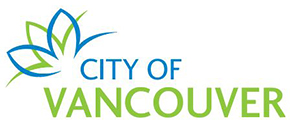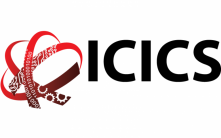Rogers, UBC, and the City of Vancouver, held a virtual student challenge over the weekend of October 15-17, 2021 focused on the adoption of smart traffic technology in Vancouver.
While technology innovation is an enabler that improves the possibilities and efficiencies of each smart city project, it can be a real challenge for municipalities to adopt due to time, budget, access to technology, policies, and the like.
Undergrads and graduate students were invited to learn, collaborate, and ideate to explore the real value of implementing smart traffic technology in one of the most congested cities in Canada.
Students were provided with:
▪ Background on the problem space
▪ An overview of smart traffic solutions & 5G as an enabler
▪ A variety of datasets provided by NoTraffic, Rogers, the City of Vancouver and UBC
Students gained the opportunity to:
▪ Work cross functionally to develop a case and pitch for smart traffic technology in Vancouver
▪ Be exposed to 5G, smart traffic technology, and other transportation/traffic/smart city related information
▪ Access SMEs in transportation and smart city solutions
▪ Win awesome prizes like a new Smartphone, Mastercard Gift Cards and more
Members of the winning team will be given the opportunity for mentorship from Rogers and the chance to participate in a 4-month paid internship.
Date: October 15 – 17, 2021
Location: Virtual
Rogers
Rogers is committed to bring 5G to life for Canadians through network investments and strategic partnerships to research, incubate and commercialize made-in-Canada 5G technology. Through its multi-year partnership with UBC and various partners, the company has helped launch Canada’s first 5G smart city pilot and complete Canada’s first 5G drone flight.
Why work at Rogers?
We have a long history of investing in the next generation, and we’re committed to making Rogers the top destination for young people to start and grow their careers in Canada.
Our New Grad Leadership Development Program gives new graduates the opportunity to be involved in meaningful projects, contribute real work, develop key skills and learn from a diverse group of leaders.
The City of Vancouver’s Vision:
How we move around the city can influence the health and well-being of individuals, communities, and our environment. It can point to social inequities and neighbourhoods that need more investment and care. We’re expecting to gain one million residents in the Metro Vancouver region over the next 20 years and, there is no more room for additional road space for more driving or parking.
On November 17, 2020, Council approved the Climate Emergency Action Plan. This puts Vancouver on track to reduce our carbon pollution by 50% by 2030, in alignment with the findings of the United Nations Intergovernmental Panel on Climate Change to limit global warming to 1.5°C. To achieve this we need to reduce carbon pollution created from burning gasoline and diesel in vehicles, support walkable, complete neighbourhoods, support a transition to active transportation and transit, and encourage drivers to switch to zero emissions vehicles.
The City of Vancouver envisions a smart and efficient transportation system that supports a thriving economy while increasing affordability; healthy citizens who are mobile in a safe, accessible, and vibrant city; and a city that enhances its natural environment to ensure a healthy future for its residents and the planet.
About NoTraffic
NoTraffic has developed a technology that brings traffic lights into the 21st century.
The company’s real-time, plug-and-play autonomous traffic management platform uses AI and cloud computing via the Rogers network to reinvent how cities run their transport networks by identifying, classifying, and tracking all road users – including passenger and non-passenger vehicles, bikes, e-scooters, buses, and pedestrians.
The system provides all-weather sensors installed at intersections to accurately predict arrival times at an intersection and accordingly streamline the timing of the traffic light system autonomously, to maximize the flow of traffic – reducing congestion and emissions, prioritizing different types of vehicles and other roadways users, and reducing accidents.



